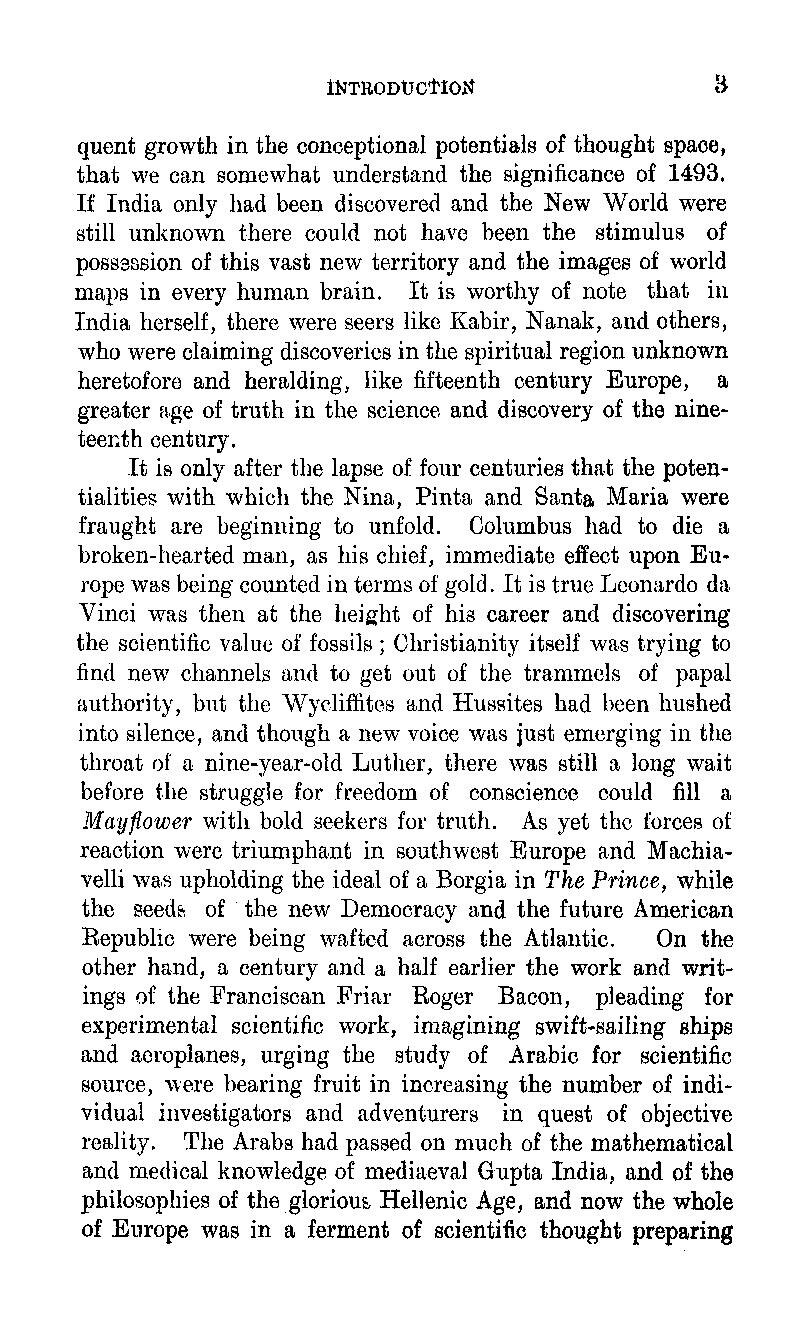quent growth in the conceptional potentials of thought space, that we can somewhat understand the significance of 1493. If India only had been discovered and the New World were still unknown there could not have been the stimulus of possession of this vast new territory and the images of world maps in every human brain. It is worthy of note that in India herself, there were seers like Kabir, Nanak, and others, who were claiming discoveries in the spiritual region unknown heretofore and heralding, like fifteenth century Europe, a greater age of truth in the science and discovery of the nineteenth century.
It is only after the lapse of four centuries that the potentialities with which the Nina, Pinta and Santa Maria were fraught are beginning to unfold. Columbus had to die a broken-hearted man, as his chief, immediate effect upon Europe was being counted in terms of gold. It is true Leonardo da Vinci was then at the height of his career and discovering the scientific value of fossils Christianity itself was trying to find new channels and to get out of the trammels of papal authority, but the Wycliffites and Hussites had been hushed into silence, and though a new voice was just emerging in the throat of a nine-year-old Luther, there was still a long wait before the struggle for freedom of conscience could fill a Mayflower with bold seekers for truth. As yet the forces of reaction were triumphant in southwest Europe and Machiavelli was upholding the ideal of a Borgia in The Prince, while the seeds of the new Democracy and the future American Republic were being wafted across the Atlantic. On the other hand, a century and a half earlier the work and writings of the Franciscan Friar Roger Bacon, pleading for experimental scientific work, imagining swift-sailing ships and aeroplanes, urging the study of Arabic for scientific source, were bearing fruit in increasing the number of individual investigators and adventurers in quest of objective reality. The Arabs had passed on much of the mathematical and medical knowledge of mediaeval Gupta India, and of the philosophies of the glorious Hellenic Age, and now the whole of Europe was in a ferment of scientific thought preparing �
